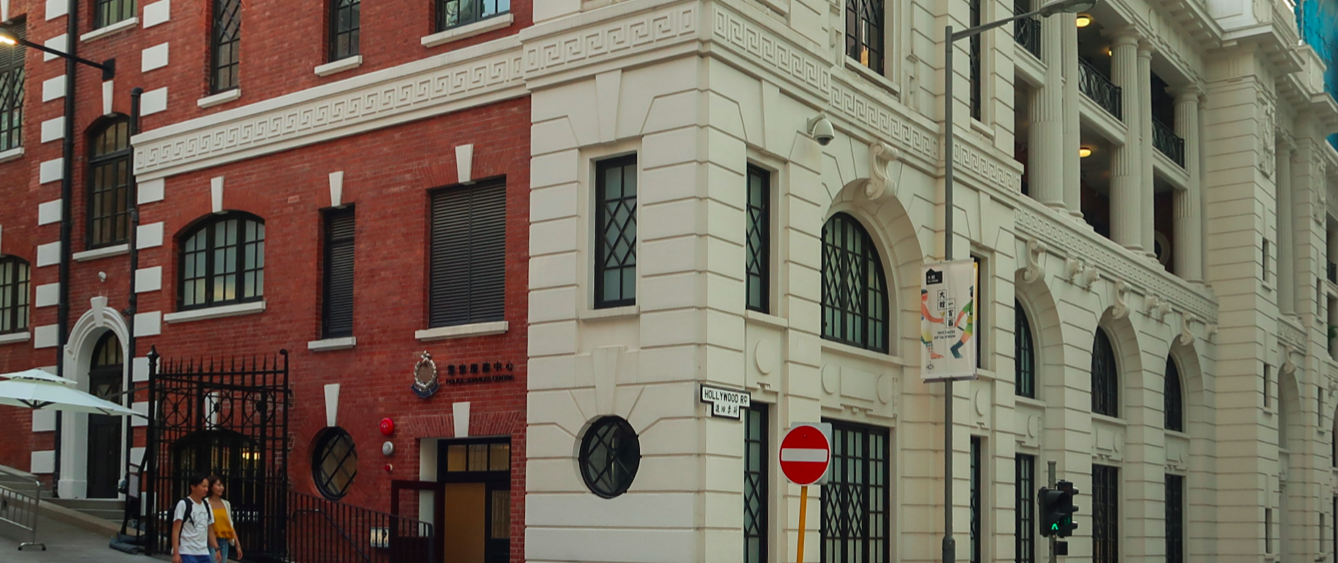In Hong Kong, there are more criminal cases than one may expect. In relatively non-serious cases, if the defendant has a good background, it is possible to apply for an Offer No Evidence Bindover order (also known as O.N.E. Bindover or ONEBO).
If the Prosecutor agrees to the O.N.E. Bindover application and the Court allows it, the defendant will only have to agree to the facts submitted by the Prosecution during mention, and thereby admitting to the wrongdoing that he/ she had committed, be warned by the Court, and promise to the Court that he/she will keep the peace and behaves well during in the prescribed period of time. Usually, the Court would then order the defendant be "bound over" as such for 1-2 years . The practical outcome is that the defendant would have no criminal record.
It is a most precious opportunity for most defendants in criminal cases to "get a second chance" by getting the bindover treatment, as they would have no criminal record and can be relieved from the mental pressure from litigation (such as enduring a criminal trial or being imposed a sentence). They are given another chance to start afresh, behave well and work hard towards their goals in life.
Depending on the severity of each particular case, it is more common for a O.N.E. Bindover to be granted in cases involving relatively minor offences, such as:
- Theft eg. Shoplifting
- Criminal Damage
- Common Assault
- Unlawful Fight in a Public Place
- Ill-treatment or Neglect by those in charge of Child or Young Person
- Possession of a Dangerous Drug eg. a small amount of cannabis / marijuana
According to the Prosecution Code of Department of Justice, the Prosecution MUST consider the following factors when dealing with a O.N.E. Bindover request:
- whether the public interest requires the Prosecution to proceed;
- whether the consequences to the offender would be out of all proportion to the gravity of the offence;
- the likely penalty in the event of conviction;
- the age of the offender, his or her record, character, mental state (at the time of offending and presently);
- the views of the victim;
- the attitude of the offender to the offence.
Specifically in relation to shoplifting, a High Court Judge remarked in judgment in obiter that the prosecution could exercise greater discretion to agree to bind over first-time offenders in cases not of the most serious nature (HKSAR v 許靜宜 HCMA543/2015). The judgment is as follows (available only in Chinese as the judgment was rendered in Chinese only):
“…後言
刑事檢控的權力在於律政司。本席認為律政司刑事檢控科可以採取更大的酌情權,以非「刑事檢控」方式去處理店鋪盜竊的案件,以便干犯者或涉嫌人士能免卻刑事檢控的焦慮、壓力、困惑,和一經定罪後終生所面對的刑事紀錄。本席認為亦深信,有部分相關人士自當銘記於心,不會再以身試法,珍惜那非「刑事檢控」的寬大處理手法。當然再次犯案者若然再被捕,這可說咎由自取,自毀前程,與人無尤。就本上訴案而言,本席認為在情、理、法的考慮下,律政司大可以較寬大的程度或尺度來行使相關的酌情權。”
Indeed, from our experience, an absolute majority of our clients who successfully obtained the O.N.E. Bindover order behave well afterwards. Very few of them committed any offence again. We have kept in touch with some of them and have seen positive changes to their lives. Some of them have even taken up voluntary work to help the community, while some have changed their personality for the better, and some have improved their relationships with their families.
CPH Legal is experienced in handling criminal cases. Our Principal Solicitor, Mr. Eric P H Chan, serves as a criminal defence lawyer and as a fiat prosecutor briefed by Department of Justice, and is familiar with criminal procedure and the police's investigation process.
In appropriate cases, we have successfully negotiated and obtained the O.N.E. Bindover treatment for a large number of our clients, so that they would not be left with a criminal record.
If you are encountering a criminal case, and wish to deal with the case by way of O.N.E. Bindover, or wish to contest the case in Court, please contact our firm for consultation as soon as possible so as to allow sufficient time for case preparation.
Frequently asked questions (FAQs) for O.N.E. Bindover:
Q1: I've confessed in my statement (Notebook / Record of Interview / Video Recorded Interview). Can I still apply for O.N.E. Bindover?
A1: Yes. The fact that you've confessed under caution demonstrates your genuine remorse and is conducive to an arrangement for O.N.E. Bindover.
Q2: If I remained silent or denied the offence under caution, can I still apply for O.N.E. Bindover?
A2: It is a constitutional right for an arrested person to remain silent under caution. Remaining silent does not affect your chance of applying for O.N.E. Bindover. If you denied the offence under caution, you may still apply for it, but your solicitors may have to explain to the prosecutor in the letter why you offered the explanation you did under caution.
Q3: Will I definitely be entitled to O.N.E. Bindover in a shoplifting / common assault case if I had no previous criminal record?
A3: The normal policy for the DOJ is to prosecute all cases where there is sufficient evidence. It is an exception, rather than a rule, to give the defendant a chance by way of O.N.E. Bindover. As such, thorough preparation is needed to make proper written representations to the DOJ to convince the prosecutor in charge to exercise his discretion to give you a chance and spare you a criminal record by way of O.N.E. Bindover.
Q4: What are the procedures ahead if the DOJ agrees to the O.N.E. Bindover arrangement?
A4: Upon DOJ's confirmation (whether verbal or written) that it is agreeable to O.N.E. Bindover, your lawyer will attend the upcoming mention hearing for you and report to the Court of such an agreement as well as convince the Court to grant an order as such. Upon the Court's approval, the Brief Facts will be read out in Court and you will be asked whether you agree to the Brief Facts. You will need to answer in the affirmative. The Court will then order you to be bound-over for a period of time, normally 12-24 months. The Court will also order you to commit a sum of money in return for your promise to keep the peace. You will then sign a recognizance confirming the terms of the O.N.E. Bindover and be able to leave the Court.
Q5: Can I leave Hong Kong after I am bound-over by the Court?
A5: Yes you can.
Q6: When my lawyer prepares his letter to the DOJ requesting O.N.E. Bindover, should he focus on the mitigating factors, or should he focus on raising a defence and pointing out the weaknesses in the prosecution's case?
A6: A general condition for O.N.E. Bindover is for the defendant to admit the prosecution's case, ie the Brief Facts. If a defendant denies the prosecution's facts, in cases where the DOJ handles the mention hearing (such as most police cases), the normal course of action for the DOJ to do is simply rejecting the O.N.E. Bindover request, and inviting the defence to simply plead not guilty and contest the case in trial.
There are two exceptions:
Exception 1: In cases where the DOJ does not handle the mention hearings such as cases prosecuted by the Immigration Department (eg. employing illegal workers), it appears that some departments such as the Immigration Department are more inclined to agree to O.N.E. Bindover if the defence lawyer can put forward a convincing defence in the letter.
Exception 1: In cases where the DOJ handles the mention hearings, if the defence lawyer can put forward highly convincing legal arguments why the charge must fail or very strong exculpatory evidence, the DOJ may agree to O.N.E. Bindover or to directly withdraw the charge (straight O.N.E.). However, this is quite a rare occurrence.
In cases where the defendant simply disputes the prosecution's facts, the DOJ normally directly rejects the O.N.E. Bindover request.
Therefore, in most cases, the appropriate course of action is to focus on the mitigation factors in the letter requesting O.N.E. Bindover, such as the good background of the defendant.
Further reading:
O.N.E. Bind-Over – Making Effective Written Representations to the DOJ - an article published by our Principal Solicitor Mr. Chan on Hong Kong Lawyer, the official journal of the Law Society of Hong Kong
If you or a family member are now involved in a criminal case and wish to obtain urgent legal advice and/or representation in Court, you can contact our WhatsApp hotline 6103 0006 or email us to set up a free WhatsApp consultation.

